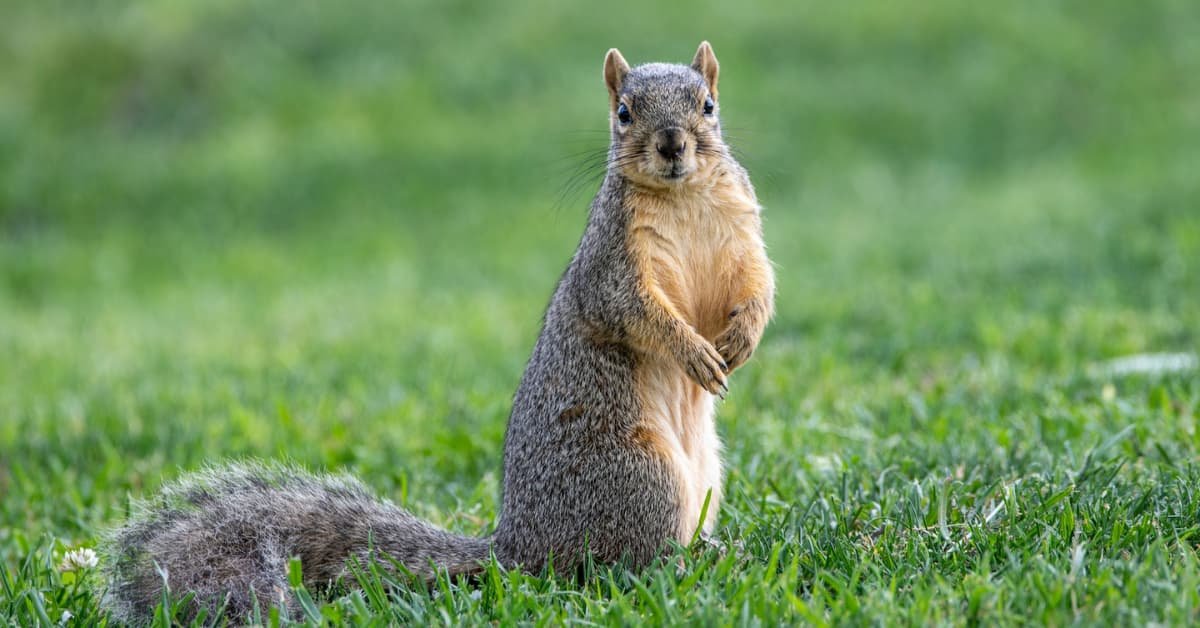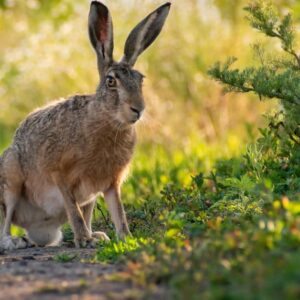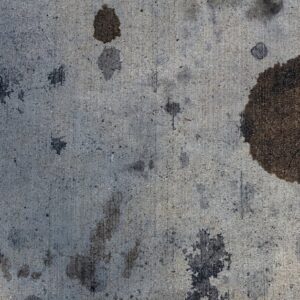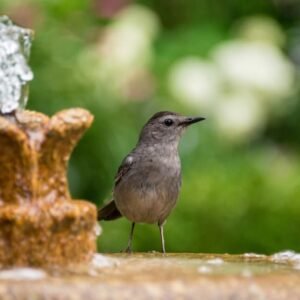
Bananas are a beloved snack for many people, but have you ever wondered if your furry friends in the trees can enjoy them too? Squirrels are known to be opportunistic feeders with diverse diets.
We will explore whether or not squirrels can eat bananas and discuss the nutritional benefits and potential risks of sharing this sweet treat with these adorable creatures.
Short Summary
- Squirrels can eat bananas in moderation as part of their diverse diet, but it’s important to remove the peel before feeding them due to digestive difficulties.
- Bananas offer essential vitamins and minerals such as potassium, vitamin C, and fiber, as well as beneficial starch and sugar that provide sustained energy for squirrels.
- Feeding squirrels with appropriate food in small amounts using a squirrel feeder is recommended to avoid overconsumption or dependency on humans. Avoid junk food and always watch for potential allergic reactions.
Can Squirrels Eat Bananas?
Yes, squirrels can eat bananas in moderation as they are opportunistic feeders and enjoy a variety of food sources.
The Answer Is Yes But In Moderation
Squirrels can indeed enjoy bananas as a part of their diet, but it’s crucial to keep the consumption limited. As opportunistic feeders and omnivores, squirrels munch on a varied selection of foods, including fruits like bananas.
Offering small portions of banana as an occasional treat allows squirrels to benefit from its essential vitamins and minerals without negative consequences.
Squirrels Are Opportunistic Feeders
Squirrels are considered opportunistic feeders, meaning they will eat whatever food source is available to them. Although their natural diet consists of nuts, seeds, fruits, and vegetables, squirrels are also known to scavenge for human food in urban areas.
When given the opportunity, squirrels will often consume bananas as part of their diet due to their sweet taste and high nutritional value.
Nutritional Benefits Of Bananas For Squirrels
Bananas are not only a tasty treat for squirrels but also offer several nutritional benefits such as essential vitamins and minerals, beneficial starch, and sugar.
Essential Vitamins And Minerals
Bananas are a great source of essential vitamins and minerals that can benefit squirrels. The following nutrients can be found in bananas:
- Potassium: Helps with muscle function, regulates fluid balance, and aids in heart health.
- Vitamin C: Supports immune system function and helps with wound healing.
- Vitamin B6: Helps with brain development, production of red blood cells, and metabolism of protein.
- Fiber: Aids in digestion and helps regulate bowel movements.
Incorporating bananas into a squirrel’s diet in moderation can provide these necessary nutrients for their overall health.
Beneficial Starch And Sugar
Aside from their essential vitamins and minerals, bananas also contain beneficial starch and sugar that can provide energy for squirrels. The starch in bananas is a complex carbohydrate that slowly releases glucose into their bloodstream, providing sustained energy throughout the day.
Additionally, the natural sugars found in bananas make them a tasty treat for squirrels to enjoy. However, as with any sugary food, it’s important to offer bananas in moderation to avoid overconsumption and potential health problems.
Other Fruits Squirrels Enjoy
Squirrels are omnivorous and enjoy a variety of fruits as part of their diet. Here are some other fruits that squirrels enjoy:
- Cherries: Cherries are a great source of vitamin C, fiber, and antioxidants. Squirrels love the taste of cherries and will often climb trees to get to them.
- Apples: Apples are packed with vitamins, minerals, and fiber. Squirrels will eat both the flesh and peel of apples, making them a great treat for these little critters.
- Grapes: Grapes are high in sugar and provide instant energy to squirrels. They also contain antioxidants that help fight off disease.
- Berries: Blueberries, strawberries, raspberries – all types of berries are a favorite among squirrels. Berries are rich in vitamins and minerals that promote overall health.
- Pears: Pears are another fruit that squirrels love to eat. They contain fiber, vitamins K and C, and potassium.
Feeding your local squirrel population with a variety of fruits is a healthy way to supplement their natural diet. Just remember to offer these treats in moderation as too much can upset their stomachs or cause dependency on human-provided food.
Risks Of Feeding Squirrels Bananas
Feeding squirrels bananas can pose some risks such as difficulty digesting banana peels and potential health problems from dependency on humans.
Difficulty Digesting Banana Peels
While bananas are a nutritious treat for squirrels, it is important to note that they have difficulty digesting banana peels. These tough and fibrous peels can cause digestive issues in squirrels, leading to discomfort and even health problems.
As such, it is recommended that you remove the peel before feeding your furry friends.
Feeding squirrels with appropriate food is crucial as their digestive system works differently from humans or other animals. Other foods like fruits such as cherries may also pose dangers to these animals if not given in moderation.
It’s thus essential to watch out for the type of food you offer when feeding wildlife around your home or property area.
Health Problems And Dependency On Humans
While bananas can be a nutritious treat for squirrels, feeding them too often can lead to health problems. Squirrels may become dependent on humans for their food source, leading to issues with foraging and potential malnutrition if the human-supplied diet is not balanced.
It’s important to remember that while we may enjoy feeding wildlife, it’s best when animals are able to rely on natural food sources rather than becoming reliant on humans.
One way to ensure that squirrels have access to a variety of natural foods is by providing a squirrel feeder stocked with items like sunflower seeds and corn. This encourages normal foraging behavior while still allowing you the joy of watching these adorable critters snack away.
Feeding Squirrels: Best Practices
Offer food in small amounts to prevent overconsumption and use a squirrel feeder to provide appropriate treats, while avoiding junk food and watching for allergic reactions.
Offer Food In Small Amounts
It is important to offer food in small amounts to squirrels when feeding them bananas or any other treats. Overconsumption can lead to health problems and dependency on humans for food.
Squirrels are opportunistic feeders, but they still need to maintain a balanced diet.
A good way to offer food in small amounts is by using squirrel feeders specifically designed for this purpose. These feeders dispense just enough food at a time, preventing squirrels from overeating or hoarding the food.
Overall, offering small amounts of healthy treats like bananas can be a great bonding experience with pet squirrels or an enjoyable way to watch wildlife in your backyard.
Use A Squirrel Feeder
Squirrel feeders are an effective way to offer squirrels a nutritious treat in a controlled and safe manner. By providing food in small amounts, you can ensure that squirrels do not become over-reliant on human-provided meals.
Squirrel feeders come in various shapes and sizes, from traditional wooden boxes to creative designs made from recycled materials.
When using a squirrel feeder, it’s important to avoid junk food such as candy or processed snacks – these can cause health problems like obesity or diabetes in squirrels just as they do with humans.
Instead, opt for natural treats like fruits (bananas included!) or nuts that mimic what a squirrel would find in its natural habitat.
Avoid Junk Food
Feeding squirrels junk food is not recommended as it can be harmful to their health. Squirrels are omnivores and have a varied diet. but processed or sugary foods should be avoided.
It’s important to remember that squirrels are wild animals and should not become too dependent on humans for their food source. Feeding them too much junk food might make them lose the ability to forage for natural sources of nutrition.
Watch For Allergic Reactions
While bananas are generally safe for squirrels to eat, just like people, squirrels can have allergic reactions to certain foods. Signs of an allergic reaction in squirrels may include rashes, swelling, difficulty breathing, and other symptoms.
It’s also worth noting that some human foods are toxic to squirrels. Foods such as chocolate and avocados should never be fed to squirrels as they contain chemicals that can cause serious health problems.
As a general rule of thumb, stick with natural foods like fruits and nuts that are known to be safe treats for wildlife.
Conclusion
Squirrels can certainly eat bananas and enjoy them as part of their diet. However, it is important to offer them in moderation and be cautious of potential risks such as difficulty digesting banana peels or over-dependency on humans for food.
Providing a variety of fruits as an occasional treat along with their natural diet is ideal for keeping these opportunistic feeders healthy and happy.
FAQs:
Can squirrels eat bananas as a part of their regular diet?
Yes, squirrels can consume bananas as part of their varied diet which should be mostly composed of nuts, seeds, and fruits like berries and apples.
Is it safe to give bananas to squirrels in my backyard?
It is generally safe for squirrels to eat, but if they are being fed by humans on a regular basis it may cause them to become dependent on human-provided food sources rather than taking care of themselves in the wild.
Should I peel the banana before giving it to a squirrel?
It’s recommended that you peel the banana before giving it to a squirrel so they don’t choke on any pieces or accidentally ingest chemicals used while growing or storing produce.
Are there any potential risks associated with feeding squirrels bananas?
If fed too much fruit – especially sugary ones like bananas – over time this could lead to digestive problems such as diarrhea or constipation in animals that are not accustomed to consuming high-sugar foods.



